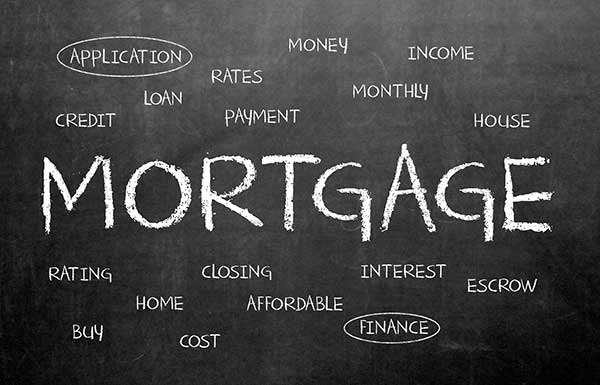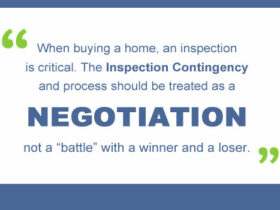You often read about what to do before applying for a mortgage to buy a home. However, despite all the attention paid to the housing market and restrictive lending standards over the past few years, it is still quite common for home-buyers to be unaware of what “NOT” to do before, or during their application for a mortgage.
In this post, we’ll discuss some of the potentially costly mistakes and things to avoid when applying for a mortgage to buy a home.
Table of Contents
- Changing Jobs or Careers
- Applying for New Credit
- Closing Credit Cards
- Buying a Car
- Paying Off a Car Loan
- Large Bank Deposits
- Getting Pre Approved
- Talking to Your Lender
- Late Bill Payments
- Making Large Purchases
- Conclusion
Don’t Change Your Job or Career
Problem: Changing jobs is part of the culture of moving up in the business world. But if you’re interested in buying a house, a recent job change, especially if it involves a career change or relocation, can be a red flag to a mortgage lender.
A lender will scrutinize any job switch or relocation, but a career change might be the single worst thing you could do to jeopardize your ability to buy a home in the near term! If you are counting on two incomes to qualify for a mortgage loan, the same principles apply to both loan applicants. Stability of employment is perhaps the single most crucial qualifier for a mortgage loan.
Solution: While a job relocation is not uncommon, if you want to buy a house soon after relocating, or if you have recently changed careers, hopefully, you have an ample down payment, some additional savings, and an impeccable credit record. You could also put off your home search for a reasonable length of time.
If, on the other hand, you were transferred to a new location by your employer, you should have an easier time qualifying. A good employment history, acceptable credit scores, stability in other aspects of your life, and a pay period or two in the new location will all be in your favor when a lender reviews your application.
Again, renting for a few months (or even staying in a residence hotel) can make sense as you learn about your new city and its neighborhoods. While separation from your spouse & family members is not ideal, it may also work to your advantage if you have a home in your previous location to sell or if there are other moving arrangements to be made.
So in short, a job change would be scrutinized, and a career change would likely be a BIG mistake! Don’t change careers before applying for a mortgage.
Don’t Apply For New Credit Cards
 Problem: Even if you currently have an excellent credit score and feel confident of your ability to qualify for more credit, resist applying for any credit cards for a period of three to six months before making a mortgage application. Even if you have already received pre-approval, avoid applying for new credit cards until after closing your home loan.
Problem: Even if you currently have an excellent credit score and feel confident of your ability to qualify for more credit, resist applying for any credit cards for a period of three to six months before making a mortgage application. Even if you have already received pre-approval, avoid applying for new credit cards until after closing your home loan.
Not only does every credit inquiry “ding” your credit for a while, but any new lines of credit can hurt rather than help. Also, many lenders may view your application more favorably if you have small balances on a few cards and demonstrate verifiable payment history.
Solution: Keep a close watch on your spending habits if you want to better your chances of buying the home of your dreams. Beware of those tempting credit card offers at the checkout counter of your favorite department store or the offers that promise frequent flyer miles and gifts for transferring balances.
Sure… you’d like to “save 10% today by applying” for that department store credit card. But opening new credit cards would be a BIG mistake! Avoid opening new credit cards before applying for a mortgage.
Don’t Close Major Credit Card Accounts
Problem: Logic would seem to be on the side of lowering credit card debt and eliminating unnecessary or unused lines of credit. However – and this is where it can get confusing – closing a credit card account might have the opposite effect; by doing so, you may increase your “credit utilization” ratio.
How does closing a credit card affect your credit score and mortgage application? The percentage of available credit is among the top factors that influence your credit score, and ultimately your future mortgage interest rate. Closing unused credit cards reduces access to credit from your perspective, but in closing an account you will have increased your credit utilization ratio from a lender’s point of view – and that’s a bad thing.
For example, if you have credit card limits totaling $10,000 and balances of $2,000, your ratio is 20%. If you then close a credit card with a limit of $6,000, you just raised your utilization percentage to 50%. That does not bode well for your credit scores, which could complicate mortgage approval, and/or raise your interest rate.
Solution: Use your credit responsibly. Major credit card accounts benefit your credit score over time by demonstrating your ability to manage money and repay debt according to specified terms. Even if you detest the credit card company and would not recommend them to friends, keep calm, and leave the account open, especially if it’s an account you have had for some time. Make an occasional purchase and pay the entire balance on time to avoid paying interest if you wish. Just remember that it’s in your best interest.
Closing your oldest major credit card accounts is almost always a BIG mistake before buying a home.
Don’t Buy A New Car
Problem: When you’re feeling good about the economy, your earning power, and your ability to live the good life, it may be natural to indulge yourself in other ways, like buying a new car. However, hold off on the new car purchase until after you own the new garage you want to park it in!
How does buying a car affect your mortgage application? Many people ask how long after buying a new car that they can apply for a mortgage. But they’re asking the wrong question because the length of time isn’t the problem; it’s the monthly car payment.
The reason it could be bad to buy a new car before a home is because financing a new car has a negative effect on your debt-to-earnings ratio. In other words, the new auto loan payment might push your monthly debt payments beyond the threshold for home loan qualification when compared to how much you earn. While you may afford both a new car payment and the new home’s mortgage payment, the qualification guidelines for a mortgage are often not subject to stretching or interpretation. So proceed with caution.
Solution: Unless your existing vehicle explodes or dies on the highway, delay your new car purchase until the underwriter has completed work on your mortgage application and the keys to your new home are in hand. Browse new car showrooms if you must, but do not be tempted to apply for a new auto loan or sign a contract until after the home closing.
The bottom line is that car loans affect home loans, but by how much depends on your earnings. So, buying a new car before applying for a mortgage or during the mortgage underwriting process could be a BIG mistake!
Should You Payoff A Car Loan?
TL;DR – When trying to buy a house, you should not pay off a car loan without discussing your situation with a licensed mortgage professional.
Problem: It’s true that you reduce your overall monthly debt obligations by paying off a car loan. However, it’s also true that your debt repayment history determines a large portion of your credit score, including your current outstanding debts. Unless you are overextended, installment auto loans often help your credit score.
Particularly if you may need extra cash for closing costs, it’s usually not a good idea to take money from savings to pay off a car loan. One exception is if you’re doing so with the recommendation of your lender to reduce monthly debt obligations, which should increase your monthly mortgage affordability.
If your mortgage advisor recommends paying off your car loan, then you’re advised to follow their guidance.
Otherwise, if you pay off your car loan before the term ends, you run the risk that your credit score may drop a few points, and you may also reduce your available funds for down payment or closing costs, all of which could spell trouble if it causes you to pay a higher interest rate.
Solution: Remember that once you apply for a mortgage, you should avoid any financial moves that might affect your credit score or affordability unless you’ve first discussed it with your mortgage advisor. Even after you obtain a pre-approval, don’t change your financial position without consulting with your lender. Again, just play a waiting game, exercise patience, and know that buying a home is your most significant concern, for the moment at least.
For these reasons, paying off a car loan could be a BIG mistake unless recommended by your lender.
Don’t Make Unusually Large Bank Deposits
 Problem: Lenders look for patterns and stability in financial dealings. If there are changes in financial condition, they want to know why. Sources of income, as you know, must be disclosed and detailed. Your financial records should be an open book.
Problem: Lenders look for patterns and stability in financial dealings. If there are changes in financial condition, they want to know why. Sources of income, as you know, must be disclosed and detailed. Your financial records should be an open book.
If you have deposited large sums of cash into bank accounts or expect a large settlement of any form (say an inheritance, insurance proceeds or an expected royalty or commission) you will be required to explain the source of the funds and provide documentation for any large cash deposits. If you regularly receive large amounts of money that you deposit in the bank, be sure that you can document the source. If such payments begin just before your home loan application, you will likely face a barrage of questions, even if the source of funds is entirely legitimate.
Solution: Know all the details of your financial situation and have all records easily accessible before making a mortgage application. Be prepared, and don’t be offended by repeated requests for documentation from the mortgage company; it’s completely normal, and everyone has to comply, regardless of their financial status.
Regular income from any source must be provable and justifiable. If you’ve held long-term employment or are a trust fund beneficiary, your financial records should be clear. If, however, you regularly win at the casino or deal with money from other sources, not only may you find the mortgage application process more frustrating, but you might find yourself the subject of an unwanted investigation or even an IRS audit if your records are incomplete or non-existent (that’s a topic for another day).
Bottom line, when applying for a mortgage, making large cash deposits or transfers without legitimate documentation would be a BIG mistake!
Important Note: Monetary gifts (“Gift Funds”) from parents or other relatives are legitimate when used in conjunction with the purchase of a home. In these cases, explain to the lender in advance that you plan to utilize gift funds for a portion of the down payment or closing costs so that you can obtain the proper documentation. Gift funds, otherwise known as “contingent funds,” may also need to be disclosed to your real estate agent because your home purchase contract may require revealing the existence of contingent funds to the seller.
Don’t Delay Mortgage Pre-Approval
Problem: It can be tempting just to take the plunge and begin looking for your dream house without a clear idea of the market, the size and type of home you would prefer, or the amount of financing you might qualify for. That’s a case of putting the cart before the horse, to use a cliché. And it can lead to early disappointment, which a mortgage pre-approval will help prevent.
In terms of affordability, you may be pleasantly surprised when you get around to making that loan application, but it’s best to be prepared for “straight talk” from the lender. Feedback from the lender may result in adjusting your budget expectations for buying the “perfect home” by looking in a lower price bracket. While that can be a devastating blow, it’s better to get the bad news first.
Solution: By meeting with a financial professional early on in your search, you will have a clearer picture of the house you can afford. Better yet, you might also gain an understanding of what you can do in the short term to improve your credit score, increase your savings, make changes to your lifestyle, or adjust your expectations.
You will also be better prepared to make an offer that has a chance of being accepted if you are pre-approved for a home loan. In a hot real estate market, that might spell the difference between actually getting your dream home or being continually outbid by other buyers. The terms of an offer are frequently more important than the dollar amount – a quicker closing, for example, could be viewed more favorably by the seller than a few more dollars. It’s the strategy that’s important to winning.
Ready for the house hunt? Not taking immediate steps to be fully pre-approved, would be a BIG mistake!
Don’t Be Afraid to Talk to Your Lender
Problem: Withholding information, or neglecting to disclose specific facts often leads to larger consequences. The process of applying for a loan is invasive, disruptive, confusing, and sometimes downright upsetting. But if you don’t disclose everything to your lender, you might jeopardize your ability to own your own home.
Good mortgage professionals are like detectives; they are very likely to discover any truths you’ve withheld. If the information you’d rather not discuss is deemed severe enough, you could be accused of mortgage fraud. Even if the loan does close, you might not be out of the woods, and prosecution for a crime is undoubtedly a worse fate than delaying a home purchase.
Solution: If we only had one piece of advice to offer prospective home buyers, it would be to talk with the lender about everything! Make an effort to be upfront, honest, and forthcoming with information about your financial affairs, earnings, savings, and personal relationships. If there are questions regarding past or present financial claims, explain fully and prepare to supply as much documentation as possible. An accurate financial profile is your responsibility.
Keep in mind that lenders are as interested in making a deal as you are. There are often ways to work around less than a stellar financial record; there are even loans available if you have had a bankruptcy or a previous mortgage default and foreclosure or short sale.
Questions by a lender or underwriter deserve honest answers and your full attention. Hiding pertinent information when applying for a mortgage would be a BIG mistake!
Don’t Be Late on Bill Payments
Problem: Even a single late bill payment can look bad on a credit report. Although there can be reasonable mitigating circumstances, underwriters look for patterns, so you should do everything in your power to avoid any late or missed bill payments.
While mail can be lost and computer errors occur, during the lending process, be conscientious about paying bills in advance, monitor your accounts, and in general, be financially responsible. You don’t want to have any “uh oh” moments in terms of your financial health.
Solution: Getting an “A” grade in the financial responsibility category may well earn you high honors in terms of faster approval, a lower interest rate, and on the fast-track to your new home purchase, and paying bills on time is among the best things you can do for your credit.
If you haven’t already resolved to keep an eye on your financial standing, do it now – now and forever. If you are like the typical American, you will be moving at least seven times throughout your life. The chances are that you will buy more than one home. Take pains now to organize your finances, save money, live within your means, and protect your future. Then expect a bright future.
When buying and financing a home, not paying bills on time would be a BIG mistake!
Don’t Make Large Purchases Until After Closing
Problem: This is similar to our previous advice to put off a new car purchase. As you look towards your future home purchase and closing, you will be tempted to also go on the hunt for that new refrigerator, the swing set, a gas barbecue, patio furniture, or a brand new bedroom set.
But, even if your Uncle Harry and Aunt Judy give you an early housewarming present in cash, heed the other warnings!. Thank the gifter profusely, then hide the money in a sock (only half kidding about that!). Bottom line, don’t deposit large sums in your bank, and don’t go on a spending spree, even if you’re paying cash.
Solution: Delay making large purchases until you have the keys to the new home. Even if it means living with relatives for a few more days, or keep ice in a cooler when you first move into the new house, you don’t want credit inquiries, large purchases to show up on your credit report, or for your bank balance to fluctuate greatly before closing.
Remember that a lender can revoke a previous mortgage approval any time before closing. The house is not yours until you’ve signed all mortgage documents and the title company confirms that funding has occurred.
For most home buyers, going on a spending spree before closing is usually a BIG mistake!
Conclusion
We are not mortgage lenders… so be sure to seek professional counsel with a mortgage advisor in every case. Our Mortgage Mistakes are offered in the spirit of helping you see clearly through the smokescreen of requirements and requests that are common with mortgage applications today. Gone are the days when a friendly banker would agree to a home loan because of your character or the fact that he knew your family.
The rules set by financial institutions and government entities are rarely subject to interpretation and cannot be broken without great effort and sweeping change. Even the people who show you properties (real estate agents, brokers, and home builders) and the home sellers themselves are subject to specific laws; title companies and local governments are as well.
While that should not dissuade you from buying a home, it should provide clear direction when you set out on your home search. Being prepared when purchasing a home is better than “winging it.” And, knowing what NOT TO DO before applying for a mortgage makes it easier to do what’s right.






